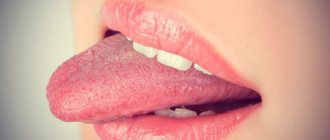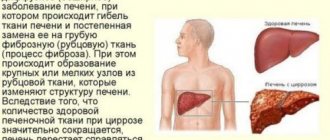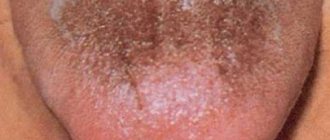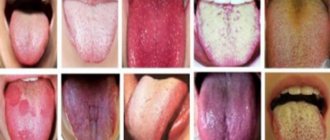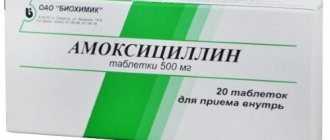The appearance of plaque on the tongue is not uncommon for anyone. People may often notice whitish deposits, which are normal in most cases and can be easily removed with special brushes. However, in rare cases, patients experience severe changes in the color of the tongue. When faced with dark plaque for the first time, people do not understand which doctor to contact and what diseases this unusual symptom may indicate.
- 5 How to remove dark plaque on the tongue?
- 6 Treatment prognosis and possible complications
- 7 Prevention
Varieties of black coating on the tongue
Until recently, the discovery of a black coating on the tongue was perceived as infection with cholera. This disease is a thing of the past, but the symptom appears in people with enviable regularity. The causes of this phenomenon are varied, as are the symptoms.
Black plaque may appear on the following parts of the tongue:
- tip;
- root;
- On the sides;
- on the middle part (in the middle).
The plaque can be uniform, equally colored over the entire area of the organ, or appears in the form of “ripples”, giving the tongue a spotty appearance. one or two dark spots on it
, located in certain places. Experts also diagnose a general darkening of the organ, when its entire mass becomes gray, as if dirty in appearance.
Often, a dark coating on the tongue is combined with other signs of an existing disease, including heartburn, bitter taste in the mouth, ulcers and ulcers and many other symptoms.
In adults and children, the tongue may develop black spots - specks
, randomly distributed over the entire surface of the mucous membrane. These small black dots can signal fungal and other pathologies of the body and are often accompanied by damage to the gums or the entire oral cavity.
Language is an indicator of well-being
The doctor’s request “Show your tongue!” is the most common one during any examination. The language can be used to judge the condition of many human organs. In this case, any changes in the structure, shape or size of the tongue are important: color, presence of grooves, degree of smoothness, condition of the papillae, mobility, humidity and density.
If a coated tongue can still be explained by diseases of the throat or digestive organs, then a black coating on the organ can terrify anyone. What reasons can provoke such manifestations of the body?
Banal reasons for plaque on the tongue
Before you worry and look for the reasons for the appearance of a black tongue, the symptoms of which disease are present, you should carefully examine the oral cavity. You should also remember whether you used coloring products, such as:
- blueberry;
- red wine;
- mulberry;
- food with dark dyes;
- lollipops, etc.
Black tongue is often observed after taking activated carbon tablets.
, and in this case there is definitely no need to panic. You should perform high-quality oral hygiene, and you can forget about the problem.
Among the simple and common, but more serious causes of organ darkening, alcohol abuse
. They not only stain the tongue, but also provide the body with chronic intoxication, disrupting metabolism and slowing down the rate of elimination of toxins.
Gray plaque with black streaks may be the result of poor oral hygiene, in which case the symptom is accompanied by an unpleasant odor. Another popular reason why there is a black coating on the tongue is the active proliferation of mold fungi
after taking antibiotics. When local immunity is weakened, these microorganisms colonize the mucous membrane and give it a dark tint.
Gastrointestinal diseases and black tongue
Blackening of the mucous membrane of the tongue in children is almost always associated with pathologies of the digestive system. In adults, the incidence of such problems in the presence of black plaque is lower
, and yet
gastrointestinal
occupy a leading position.
The symptom is more common in people who abuse fast food, baked goods, carbohydrate foods
, food with an abundance of preservatives, dyes, and other harmful additives. Such a “diet” leads to metabolic disorders, and the tongue serves as an indicator of general ill-being.
In Crohn's disease, the tongue turns black
, since an increase in melanin production occurs in the body due to suppression of the adrenal glands. Diseases of the gallbladder, stomach, and duodenum also cause changes in the oral cavity, and only their treatment will help get rid of the scourge.
Signs of the main pathologies of the gastrointestinal tract, accompanied by the appearance of a dark coating on the tongue, are shown in the table.
| Disease | Tongue symptom |
| Crohn's disease | Dark black or black-blue stains, especially noticeable in the morning, cannot be removed |
| Gastritis, stomach ulcer | Black and yellow plaque |
| Cholestasis, cholecystitis | Yellow spots with black streaks |
| Inflammation of the pancreas | Dark middle of tongue |
Reasons for appearance
There may be quite a few reasons why a patient has a black coating on his tongue. Let's consider the most likely of them:
- acidosis (disturbance of the acid-base balance in the human body);
- diseases of the pancreas, gall bladder and digestive organs;
- presence of cholera infection;
- development of acute infectious diseases;
- the appearance and reproduction of chromogenic fungus in the oral cavity.
Let's look at all these reasons in more detail.
Angina
A black coating on the tongue in the morning may indicate a sore throat, especially if the patient has a very high fever and there is an acute respiratory viral infection in the body. In this case, you need to consult a doctor so that he can establish the correct diagnosis and prescribe adequate treatment. If you have a sore throat, a black coating on the tongue does not require any separate treatment; after recovery, it will disappear on its own. During illness, oral hygiene procedures should be carried out very carefully, cleaning not only the teeth and gums, but also the tongue.
Acidosis
As a result of a change in the acid-base balance towards increasing acidity, the patient's tongue may have a black or dark coating. Only an experienced doctor can make a diagnosis based on clinical studies and tests. Therefore, if you are concerned about a dark coating on your tongue, you should consult a general practitioner, undergo an examination, and only then begin treatment.
Diseases of the digestive tract
If you have a black coating on your tongue, the reasons may be the development of diseases of the gastrointestinal tract, primarily the pancreas and gall bladder. Many patients complain that along with the plaque there is a bitterness in the mouth, although they have no problems with the stomach. In fact, the disease can occur in a latent form, without showing itself for the time being. At the first signs, you should consult a doctor and take a blood test to rule out the presence of serious pathologies of the gastrointestinal tract.
Antibiotics
A black coating on the tongue after antibiotics appears quite rarely and usually signals a weakened human immune system. After all, antibiotics are not taken on their own; they are prescribed only for serious indications. And, accordingly, such a patient’s immunity is weakened. Taking antibiotics is also associated with the risk of multiplying a fungal infection, and the development of chromogenic fungus in the oral cavity only increases the risk of black plaque formation.
In the morning
Dark plaque on the tongue and teeth in the morning is a fairly common phenomenon, since bacteria and microorganisms actively multiplied in the patient’s mouth overnight. It is extremely important to brush your teeth before going to bed, this way we reduce the number of pathogenic bacteria and prevent the appearance of dense plaque.
Thrush
Black coating on the tongue and thrush are not as closely related as they might seem. Most often, with thrush, a white coating appears, which is quite difficult to remove; soon it appears again and again. But if the disease is in an extremely advanced state, the coating on the tongue may darken and resemble black in color.
Bitterness in the mouth
A black coating on the tongue and bitterness in the mouth may indicate diseases of the pancreas and gall bladder. With these diseases, dehydration of the body often occurs, which is expressed in the appearance of bitterness in the mouth.
Sometimes patients ask why a black coating appears on the tongue if everything is fine with the digestive tract. We remind you that sometimes diseases occur in the so-called latent form, in which the patient is not even aware of the presence of the disease. And dark language should definitely alert you.
Chromogenic fungus
Black-green plaque may be the cause of chromogenic fungus in the oral cavity. In this case, plaque covers not only the patient’s tongue, but also his teeth and gums. Dark green spots appear on the surface of the tooth enamel. In this case, it is necessary to observe extremely careful oral hygiene.
Inflammatory pathologies of the oral cavity
Pharyngitis or chronic tonsillitis
in the acute stage, they can also lead to the appearance of a black “sediment” on the tongue. Its distinctive feature is its presence after waking up and its almost complete disappearance after eating or hygienic cleaning.
Sometimes a black coating appears on the tonsils and tongue in combination with an increase in body temperature. Such symptoms are characteristic of tonsillitis (acute tonsillitis). Sore throat does not occur without a sore throat, so making a diagnosis in such a situation is quite simple. When the disease passes, the unpleasant manifestations of the tongue will also disappear.
Sometimes black spots form after suffering from the flu - this is how glossitis, or inflammation of the tongue, occurs.
Oddly enough, sometimes a black tongue means the development of oral candidiasis, or thrush
. Typically, this pathology manifests itself as white cheesy masses localized in the mouth, but advanced stages cause darkening of the plaque. The disease is accompanied by bad breath, burning, tingling, and tissue swelling.
What to look for when examining your tongue
An adult brushes his teeth every day. The same mandatory rule for any person should be a daily inspection of the tongue.
When examining the tongue, it is important to pay attention to its:
- color;
- plaque;
- surface structure;
- mobility;
- symmetry;
- the appearance of bubbles, pimples, spots and other inclusions.
If a black coating appears on your tongue, it is also important to remember other symptoms:
- past illnesses or stress;
- temperature increase;
- drug treatment;
- consumption of alcohol, nicotine, etc.
Other causes of black plaque
The appearance of this symptom cannot be ignored - it often means big health problems. For example, the body may suffer from acidosis - a buildup of toxins and a shift in the acid-base balance towards oxidation. This condition can be caused by long-term infections, intestinal disorders, and starvation diets.
Other possible causes of the pathology are as follows:
- Lead poisoning
. Acute lead intoxication almost always manifests itself as changes in the oral cavity. - Inflammatory and chronic diseases of the lungs and bronchi
. Some bacteria cause the tongue to turn a frightening shade; after recovery, the color returns to normal. - Taking certain hormonal medications
. Canceling medications helps the unpleasant color of the mucous membrane disappear. - HIV and other severe types of immunodeficiency
. With such pathologies, there is sometimes a black-gray plaque in the mouth. - Dehydration
. With an acute form of lack of fluid in the body, the tongue may change color to dark.
Infants sometimes develop a dark coating after the introduction of the first complementary foods, if until that moment the baby was fed only breast milk - as a reaction to a new product. There is also a separate pathology - “black hairy tongue”, in which papillary outgrowths grow on the organ, become dark and hard. The exact reasons are not clear, but the disease most often appears in smokers.
Diagnosis of pathology
Dark plaque is not a specific disease, but a symptom, so it is important to see a doctor to find the cause. It’s better to start by going to a therapist, who will prescribe a number of necessary tests, but will be able to suggest a diagnosis based on the appearance of the oral cavity and additional signs. For example, if plaque appears in the form of dots, this is a sign of a fungal infection or damage to the gastrointestinal tract; large spots of plaque signal pathologies of the gallbladder and pancreas.
The examination program for such a problem is as follows:
- A general blood test
will show the inflammatory process, the presence of bacterial infections; - Bacterial culture from the oral cavity
will reflect the specific type of pathogen, including the type of fungal infection; - Blood biochemistry
– diagnoses pathologies of the hepatobiliary system, pancreas; - Coprogram, occult blood test
- necessary to identify intestinal diseases; - FGS, colonoscopy
- needed to clarify diseases of the gastrointestinal tract.
Treatment of black tongue
There are no uniform recommendations on how to remove plaque from the mucous membrane. Usually, the treatment measures recommended by a specialist for the underlying disease are sufficient, and the entire area of the tongue is cleared and returns to its normal color. In case of acidosis, it is prescribed to drink more fluids and take alkaline mineral water. Inflammatory pathologies are treated by rinsing with antiseptics and taking antibiotics orally. Fungal infections are treated with antimycotics - tablets and drops on the tongue.
Only after a complete examination is treatment selected; independent therapy is unacceptable.
Gastrointestinal diseases are eliminated by correcting nutrition and taking medications:
- antisecretory agents;
- antacids;
- bile thinners;
- herbal choleretic agents;
- enzymes, etc.
It is also important to carry out regular oral hygiene 2-3 times a day, drink kefir and other fermented milk
to normalize intestinal flora, stop smoking and alcohol. At home, you should rinse your mouth with infusions of sage, lemon peels (a tablespoon per glass of water), saline solution with tea tree oil (a teaspoon of salt and 5 drops of oil per glass of water). This will speed up getting rid of black plaque and prevent relapse.
Treatment
If a black coating is detected on the tongue, treatment must be based on an accurate diagnosis. Only in this case can you completely get rid of the disease, otherwise you can struggle with external manifestations for a long time and in vain, without affecting the very cause of darkening of the tongue.
Patients are usually interested in why a black coating appears on the tongue and what to do in this case. Only a doctor can answer the first question, since there are quite a few reasons for darkening of the tongue. The second answer should also be answered by a doctor, since the method of getting rid of black plaque directly depends on the diagnosis that will be established as a result of a thorough examination.
Be that as it may, at the first signs of the appearance of a dark coating on the tongue, all hygiene procedures should be carefully carried out, carefully cleaning the surface of the tongue with a toothbrush and paste.
